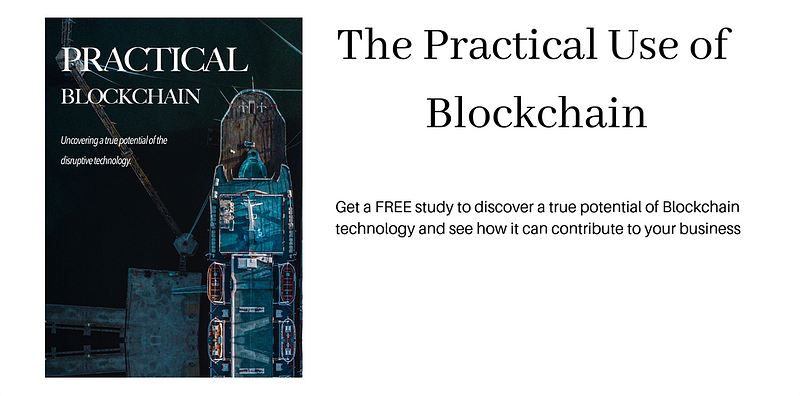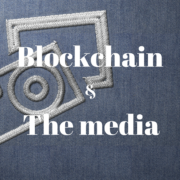BLOCKCHAIN: The Media Industry Reimagined
Remember how the television replaced the radio? How about, how the internet is replacing both of them? How we are consuming our media is constantly changing. What if I told you that this new Bitcoin frenzy is going to affect the media industry? Well, to state it correctly; the technology behind the bitcoin. Blockchain is the technology behind these new cryptocurrencies and its revolutionizing. Blockchain is fast, secure, transparent, and already being implemented into other industries. The media industry is no exception.
In this article, we are going to discuss a few ways that the media industry will be affected.
Fake news and a shift of power.
Freedom of the press combined with the internet has really created a messy situation. Fake news runs rampant on sites like Facebook. Much like weeds, they get rid of one and five more popup.
Although the internet has allowed smaller news agencies to check the larger organizations, this fake news situation has become a real problem.
Blockchain may be able to put the power in the peoples’ hands… literally. Videos and content are often bought by a distribution company and then sold to news agencies. Blockchain could create an entirely new system. Imagine a news company that eliminates all of the middlemen. How might this work? Let’s say there is a riot in North Carolina, the people there would be able to use their location and directly upload videos while acting as the anchor. This would eliminate the problem of perspective reporting; where news companies show only the perspective that they want.
Changing the publishing industry.
Self-publishing and ebook readers have changed the publishing industry. Now blockchain is here to help solve a few problems for publishers. Here are a few companies that are implementing blockchain to solve problems:
- Amino Pay: is working to solve the problem of trust and ad fraud. They are using blockchain to verify ad views and instant payments for agencies, users, and publishers.
- Po.et: is protecting the content creators by using providing them with a secure way to manage and protect their ideas.
- Unlock: is working on fixing subscription payments by allowing the publisher to create their own protocol with tokenized incentives.
The music industry.
One industry that definitely has a love/hate relationship with technology is the music industry. The walkman and the CD made music easily accessible to everyone. Then along came the internet and with it Limewire, and the free music. It is estimated that pirated music cost the economy $12.5 billion dollars a year.
Blockchain could help fight piracy but it could also help current piracy. Blockchain could be applied to new music files and allow the artist to directly track their song. This would help them track streaming websites, online sales, and potential piracy.
As for music that is already out there, sites like Limewire could come back with an update that makes them faster, more powerful, and allows users to protect their identity. Just like the internet, blockchain will help open doors for everybody.
One startup that is aiming to use blockchain to help artist track stolen content is Custos. Custos is applying blockchain to help track videos, help distribute ebooks, and track music. They are combining the idea of using a digital watermark and the power of blockchain.
Blockchain could also be implemented into sites like Souncloud and help free artist from the gatekeepers. Supersonicc is a new startup that plans to use blockchain and create a new platform that allows an artist to have complete control. Just like SoundCloud, users will have the ability to sell songs on the platform. The only difference is that blockchain will protect the artist from piracy.
A new way to pay.
Micropayments are creating a new way to pay for media. Instead of paying for the subscription service you will be able to pay per article, video, music, book, etc. Recently a newspaper, Winnipeg has revealed a new system that uses blockchain to pay per article.
This new system was extremely inefficient before, but blockchain is making it more feasible. This could allow platforms like Medium to help writers sell their articles. It would also mean more profit for the writer. Often content creators get taken advantage of by the publishers. Micropayments would also allow a consumer to choose between having ads and an ad-free platform for a small fee.
The ad industry.
This is where the money is. Ads keep sites like Youtube and Facebook free. Ads keep innovation moving forward and pay the bills. So, what does blockchain have to do with it?
Part of blockchain is something called smart contracts. Smart contracts are digital protocols that verify, negotiate, and facilitate contracts in code. They allow a transaction to occur without a third party. Truth a digital ad agency is using blockchain to allow customers to see exactly where their money goes. This will help build trust between ad agencies and their customers.
Basic Attention Token is creating a new ad platform that utilizes blockchain. They have the Brave browser which uses blockchain to block malvertisements. This new system will also provide the user with a faster experience and more relevant ads. BAT is both beneficial for the user and the advertiser.
Ads are an important part of the internet. Blockchain will make the ad industry more efficient, saving everybody time, money, and battery life. Blockchain technology is entering every industry. The media industry stands to benefit greatly from it. Whether it is good or bad, will be determined on who adapts the technology and who waits too long. Goiot has years of experience and was one of the first software development companies to enter the blockchain world. Blockchain is more than the technology that brought us bitcoin, it is faster, more secure, and revolutionizing. Contact us today for a free consultation to see how blockchain can help your industry.

Download a FREE whitepaper to understand how to innovate with Blockchain.

